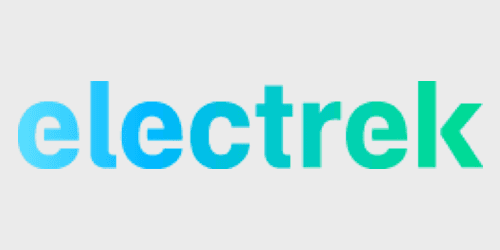
- Joe Biden confirms that if he wins, his administration would immediately rejoin the Paris Agreement.
- Volkswagen’s CEO says a Biden win would be better aligned to the automaker’s global EV strategy.
- Many US households hesitate to invest in solar due to perceived cost. Unbound Solar crunched numbers.
- Arcadia Power is committed to making clean energy work for the planet and Americans’ bank accounts — all without changing your utility company. Sign up to receive your $20 Amazon Gift Card — *ad.
Paris Agreement update
As Electrek reported, on November 4, the US formally left the Paris Agreement, the 2015 pact between 197 countries to stop global warming “well below” 2C, and work to hold it at 1.5C. The outcome of the US presidential balance is still unknown, and the race is very tight. If Donald Trump wins, the US would not rejoin the Paris Agreement.
If Joe Biden wins, he previously stated that he would re-enter the Paris Agreement with an executive order on his first day in office. He reiterated yesterday on Twitter that the US would rejoin the Paris Agreement on inauguration day, Thursday, January 20:
VW for Biden
Volkswagen Group CEO Herbert Diess said today that a Joe Biden win in the US presidential election would boost the German automaker’s efforts to manufacture electric vehicles globally.
Diess said on a Bloomberg webcast [via Reuters]:
A Democratic program would be more aligned with our worldwide strategy to fight climate change to go electric.
The United States, when it comes to market share, is the weakest region in the world.
VW is globally rolling out electric vehicles in Europe, China, and the US. As Electrek has previously reported, Biden’s plan for electric cars includes significant investments in charging infrastructure and updating government vehicle fleets to electric vehicles in order to increase demand.
In the US, VW is on track to start production of the ID.4 at the Chattanooga factory in early 2022. Orders opened in September with a $100 deposit. Headquartered in Herndon, Virginia, Volkswagen Group of America employs around 8,000 people in the US, with its manufacturing center in Chattanooga, Tennessee.
Affordable solar
Unbound Solar is a residential solar installation company in the Pacific Northwest that is 100% employee-owned. It conducted a survey of 1,000 homeowners who have either had solar installed in the last 10 years, or have begun to research the possibility of installing solar.
In the resulting study, Unbound Solar found that 86.38% of people surveyed list cost as a reason for avoiding solar, and sticker shock could be causing that perception. (53% rated it as a high concern, and 33.38% has a moderate concern.)
Further, 65.62% of people surveyed replied that “It will take too long to see ROI” as a hesitation/concern (31.87% rated it as a high concern, and 33.75% as a moderate concern). And 29.38% of people thought it would take six or more years to see ROI (20.75% thought it would take 6-10 years and 8.63% thought it would be 11+ years).
So then Unbound Solar sent over their own data, which counters those beliefs:
- Average upfront system cost: $7,000 – $8,500
- Average savings over 25 years: $42,000
- Average system payback period: 4-5 years
Electrek consistently and regularly reports on studies and installations that demonstrate how solar’s cost is dropping rapidly and will soon be the leading source of not just green energy, but energy.
So why is there a perception problem among American homeowners of solar cost? I’d love to hear your thoughts in the comments below, and here’s Unbound Solar’s “Solar Power 101″ guide if you want to learn more.
FTC: We use income earning auto affiliate links. More.





Comments